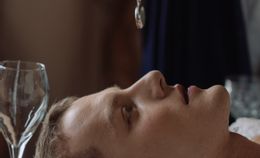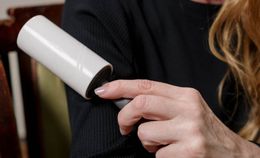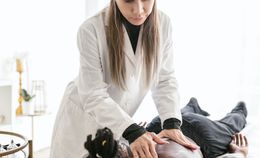Have you ever bumped or hit your head and wondered, "Do I have a concussion?"
In this article, we are going to explore statistics about concussions, its symptoms, side effects, when to go to the hospital, plus holistic and natural treatments for healing from a concussion.
What is a Concussion?
According to the Center for Disease Control (CDC), a concussion is a form of a Traumatic Brain Injury, or a TBI, which can be caused by three different types of events to the head:
-
A bump
-
A blow
-
A jolt
Head injuries and bumps can lead to a TBI. A TBI can be:
-
Mild
-
Moderate
-
Severe
A mild TBI is referred to as a concussion.
Statistics and Concussions
The dangers of concussions are not just limited to professional and college athletes. Children, elderly people, and adults can all get concussions going through normal life. The main concern for concussions is the long term effects of the resulting TBI. Concussion and TBI-related emergency room visits, hospitalizations, and deaths have increased substantially in recent years. The CDC finds that 75% of the TBI cases every year are caused by concussions. In addition:
-
Estimated number of TBI emergency room visits annually: 2.87 million.
-
Estimated child related TBI emergency room visits annually: 837,000 of these health events among children.
-
Estimated TBI deaths: 56,800 people
-
Estimated TBI related child deaths: 2,529 deaths
5 Common Causes of Concussions
Concussions can be caused by many common activities. Here is a list of five of the most common causes of concussions::
-
Car accidents
-
Bike crashes
-
Falls
-
Head collisions with objects (tables for toddlers, tripping and hitting something, etc.)
-
Sports accidents
This is not a problem that only affects people who play full-contact sports. It has become an issue for many people, especially children.
Concussions, especially repeat concussions, can result in many long term effects.
8 Long-term Side Effects of Repeat Concussions
-
Disruption of memory and reasoning
-
Negative effect on sight and balance
-
Difficulty in communicating and understanding others
-
Depression
-
Anxiety
-
Aggression
-
Personality changes
-
Loss of social skills
According to the CDC, science is still linking concussions to other issues, including a potential link to Alzheimer's disease, epilepsy, and Parkinson's disease.
12 Symptoms of a Concussion
What are some symptoms of a concussion? How do you know if you or a loved one has one?
Concussions can be hard to diagnose. Concussions are, in essence, bruises on the brain, usually caused by some kind of head trauma. There may or may not be a bruise or bump on the head. According to the Centers for Disease Control and Prevention, here is a list of twelve potential symptoms of a concussion:
People who suffer a concussion can exhibit the following symptoms:
1 Confusion or feeling dazed
2. Clumsiness
3. Slurred speech
4. Vomiting and nausea
5. Headache
6. Blurred vision
7. Dizziness
8. Sensitivity to light and/or noise
9. Ringing in the ears
10. Sluggishness
11. Difficulty concentrating
12. Memory loss
A person experiencing a concussion might exhibit all or only a few of these symptoms. Some may only last a few moments. A concussion is a very serious condition, and if you or someone you know is exhibiting symptoms, it's important to get medical attention. Sometimes, a concussion may need only time for symptoms and issues to go away, but more severe concussions require hospitalization.
11 Signs to Know When to Seek Medical Attention
There are times when a bump on the head may only require observation, ice, and rest. Other times, it could mean a trip to the ER/ hospital. So how do you know when to go to the hospital? According to the CDC, there are eleven signs when medical attention should be sought out for a concussion. Here is a list of the signs to look for:
-
Headache: Persistent headaches
-
Coordination: Reduced levels of coordination and feelings of weakness and numbness
-
Nausea: Repeated bouts of vomiting or nausea
-
Speech: Slurred and hard to comprehend
-
Drowsy: Difficulty staying awake
-
Pupils: Dilated pupils, one or more
-
Seizures: Experiences of seizures
-
Recognition: The inability to recognize people or places
-
Confusion: Increasing levels of confusion and restlessness
-
Behavior: Out of character and unusual behavior
-
Consciousness: Loss of consciousness
5 Holistic Treatment Options for Concussions
Here is a list of holistic treatment options for treating a concussion and aiding with recovery:
-
Rest
-
Anti-inflammatory diet
-
Acupuncture
-
Hypnotherapy
-
Craniosacral therapy
References
Centers for Disease Control and Prevention. (2019). Traumatic brain injury & concussion. Retrieved April 12, 2019, from https://www.cdc.gov/traumaticbraininjury
Gordon, Medlina. (2018). CranioSacral Therapy shows promise as concussion treatment - research. Horsetalk.co.nz. Retrieved April 12, 2019, from https://www.iahe.com/docs/articles/craniosacral-therapy-shows-promise-as-concussion-treatment-----research.pdf
Patel, K. G., & Sabini, R. C. (2018, June 01). Safety of Osteopathic Cranial Manipulative Medicine as an Adjunct to Conventional Postconcussion Symptom Management: A Pilot Study. Retrieved April 12, 2019, from https://jom.osteopathic.org/abstract/safety-of-osteopathic-cranial-manipulative-medicine-as-an-adjunct-to-conventional-postconcussion-symptom-management-a-pilot-study/
Symptoms of Traumatic Brain Injury (TBI) | Concussion | Traumatic Brain Injury | CDC Injury Center. (n.d.). Retrieved April 13, 2019, from https://www.cdc.gov/traumaticbraininjury/symptoms.html
TBI: Get the Facts | Concussion | Traumatic Brain Injury | CDC Injury Center. (n.d.). Retrieved April 12, 2019, from https://www.cdc.gov/traumaticbraininjury/get_the_facts.html
Wetzler, G., Fryer, S., and Visger, G. (2013). The Ricky Williams concussion project. The Ricky Williams Foundation. Retrieved from April 12, 2019, from https://www.iahe.com/docs/articles/the-ricky-williams-concussion-project.pdf
Wetzler, G, Roland, M., Fryer-Dietz, S., and Dettman-Ahern, D. (2017). Craniosacral therapy and visceral manipulation: a new treatment intervention for concussion recovery. Medical Acupuncture. Retrieved April 12, 2019, from https://www.ncbi.nlm.nih.gov/pmc/articles/PMC5580370/





















